Jason Stroman is Program Coordinator for The Blueprint Foundation. This year was the second year of a partnership between WSC and TBF, in which youth participants in The Blueprint Foundation’s mentorship program receive training to teach younger students on Salmon Watch field trips, building leadership skills and connection with nature.
WSC: Please tell us about The Blueprint Foundation.
Jason: The Blueprint Foundation is a nonprofit that was founded in 2015 to provide discipline-specific mentoring to black-identified youth in the Portland area. We wanted to address the disparity in high school graduation rates by connecting with black students and closing the gap in access to services, and also help students network and connect with job opportunities, and get into college and educational programs beyond high school.
Our mentorship program is STEM-focused and experience-focused. We get the kids out on the weekends and engage them in stewardship and restoration activities, working with local watershed councils and environmental nonprofits. This gives them hands-on experience and allows them to connect their learning with the real world, and develop a sense of stewardship.
Another important aspect of our program is peer-to-peer mentorship. We connect high school students with college students and college students with professionals so they can build their networks as they pursue careers in the green sector.
WSC: Can you talk more about the need for culturally specific youth mentorship?
Jason: Unfortunately, youth of color are coming of age in a social system that wasn’t designed to allow them to thrive and see themselves reflected in examples of leadership and success. There are systemic issues we need to address, but that’s not going to benefit the kids in the system right now who need immediate access to career role models and skills training that will help them be competitive as they’re looking to enter the workforce or apply to college.
We want to help create a pipeline to get students of color into the green sector to address the need for diversity in the workforce. We want to connect companies that care about diversity with the populations that can fill those needs and become future employees of those companies.
WSC: Can you discuss why it’s important for the green sector and the green movement to be diverse?
Jason: It’s important for the green sector to be diverse because not only do environmental issues impact us all, they disproportionately impact communities of color. It’s important to increase representation of communities of color at the decision-making level within organizations and public agencies so that programs and policies that are intended to be inclusive actually have people of color at the table, helping make decisions about the most effective ways to serve their own communities.
WSC: What specific barriers exist that might inhibit students of color from entering the green sector?
Jason: Some of the barriers that exist are due to the history of redlining and the resulting lack of access to greenspaces faced by communities of color. Redlining has also impacted school funding and as a result, schools that have higher percentages of students of color generally have less access to funding for field trips. So, students of color don’t get early exposure to the outdoors through school activities.
Additionally, often parents don’t have the time, money, or both to engage their kids in outdoor activities. So, youth of color can make it all the way to adulthood without having much exposure to the outdoors, and therefore might not develop any interest. Even if they do develop interest, they are less likely to have access to opportunities to gain skills and experience that would prepare them for careers in the green sector.
Our program is aimed at reducing those barriers. There’s no cost, we provide transportation, we provide food. After field activities, we take students out to eat together. Students know they’ll be around community, they’ll be around 15-20 folks that look like them and care about them, and they’ll be in a safe space where they can be their authentic selves while doing something they can feel good about.
WSC: Can you talk about the partnership with Salmon Watch?
Jason: The partnership with Salmon Watch started in 2017. Our students were doing work with USFWS related to salmon, and we realized that partnering with Salmon Watch was a perfect fit for our students to further their knowledge about salmon.
As mentioned, peer mentorship is part of our model, so teaching younger students also fit well into our program. Even though the students have just learned the material they’re teaching, to a 6th grader, they’re like superstars. They’re able to pass on their enthusiasm for the outdoors in a much more relatable way than we can as adults. Seeing themselves reflected in the older students creates a deeper connection to the issues in the younger students, and they’re better able to see themselves as part of it all.
WSC: How does the experience teaching younger students benefit the students in your program?
Jason: It helps increase their confidence and hone their public speaking skills. It helps boost their self-esteem and reinforces the idea that they’re really great members of the community, and they can be a positive influence on the younger generation. Their family members and community get to see them in a leadership role, and it increases their confidence in their ability to lead in other scenarios. And they can put the experience on their resumes, which can help make them competitive as they apply for jobs and college.
WSC: Why is it important for the students to build connections with nature?
Jason: Connection with nature is part of the students’ culture. We’ve been disconnected from nature over the past several hundred years, but nature has always been a part of the cultures of communities of color. It’s a basic necessity to be able to have a relationship with the earth. It’s important for mental health. It’s important to re-establish connection with nature so the students can find balance, find refuge in nature, and realize they don’t need all the other things society gives us to try to fill the void left by a lack of connection with community and the earth. And it’s important to fight for environmental equity, for access to good nutrition and health, to open spaces that students can enjoy in a safe way.
WSC: What are benefits to society as a whole and particularly to the green sector and green movement of hearing the voices of young people of color?
Jason: There are studies that show that companies that diversify and have a greater range of perspectives in their decision-making are generally more successful financially and in terms of fulfilling their goals. The green sector is no exception to that.
Also, there are significant societal shifts that need to happen as we learn to live sustainably. We need to re-evaluate how we farm, how we get our energy, how we build our infrastructure. To tackle these great challenges, we need to get everyone involved. We especially need those involved who are the most adversely affected by unsustainable ways of living, such as communities of color. We need these fresh perspectives as we create a new way of thinking about how to live on the earth.
And young people are much more open to change and new ideas than adults who are stuck in old ways of thinking, driven by old patterns and by pursuing their bottom line. There’s a lot of great energy in the younger generation and a lot more forward-thinking about their future. We need these perspectives in the green sector.
WSC: What are your goals for the long-term impacts of your program?
Jason: For the students, I hope the program helps broaden their perspectives, their skillsets, and helps build confidence and pride that they’ll apply to whatever they do. If only a fraction of them decide to pursue work in the green sector, that’s awesome. But wherever their interest ultimately lies, we want them to feel there’s a pathway to get there.
Beyond that, our goal is to cultivate the mindset of stewardship, giving back, being engaged in community, and knowing they have the power to make change for their communities and the earth. And we hope that mindset will ripple through their families and communities, and that their enthusiasm will be infectious and help bring about a better tomorrow.
You can hear about the students’ experiences in their own words when they speak at our Salmon Watch Volunteer Appreciation Party! RSVP HERE!
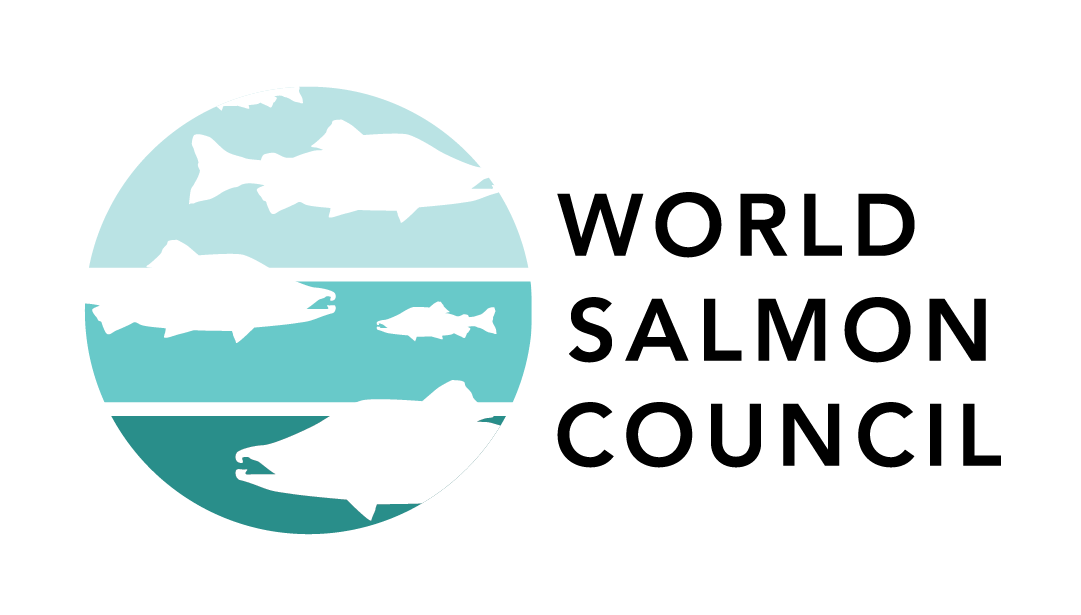
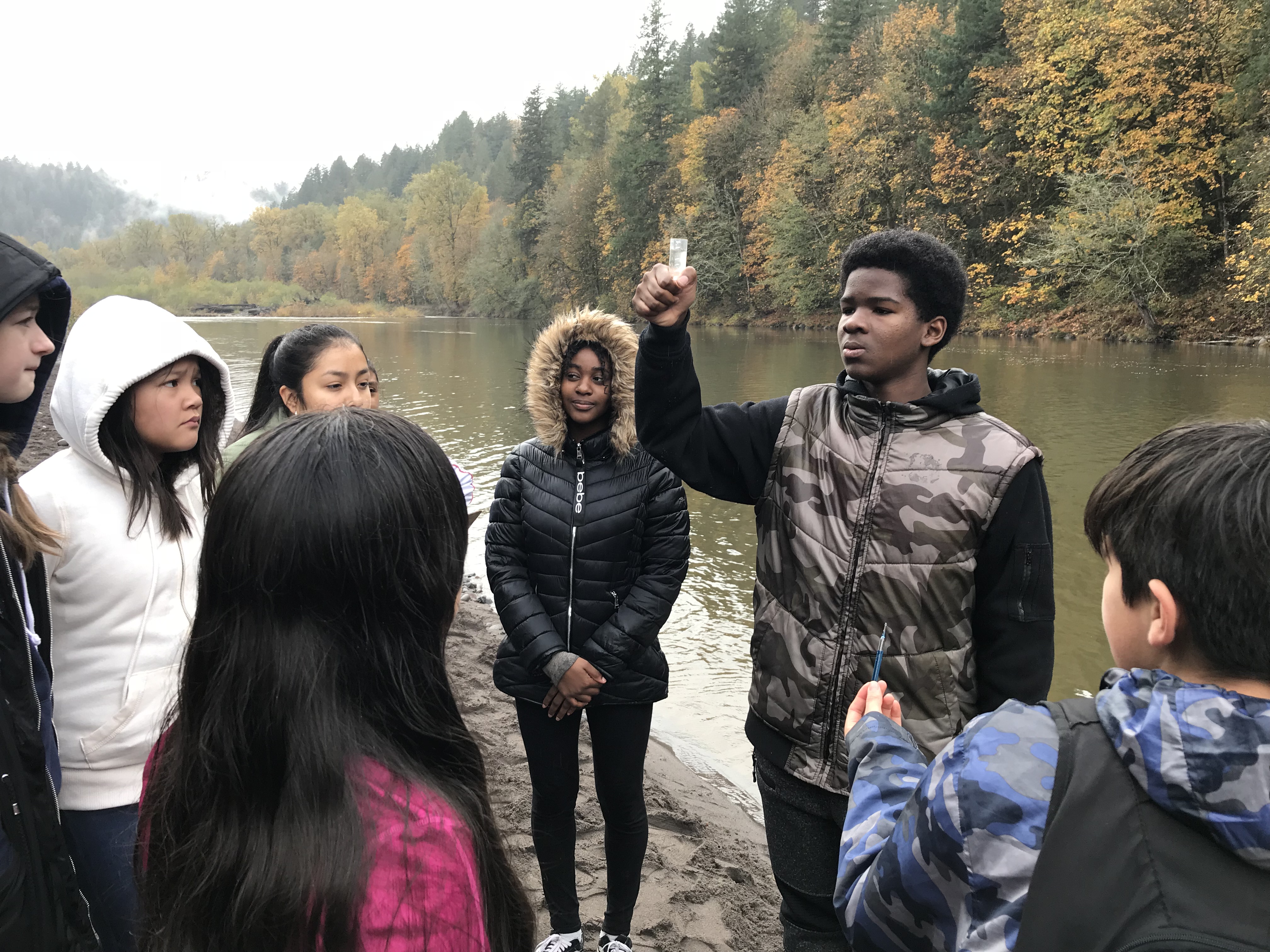
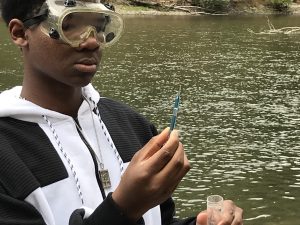
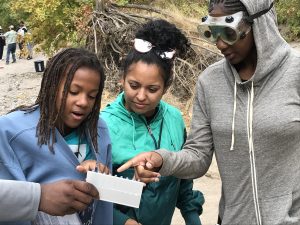
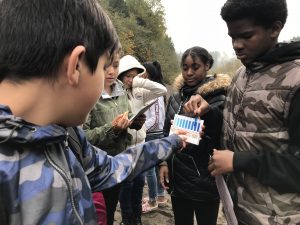
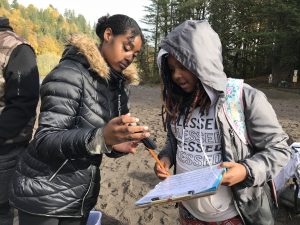
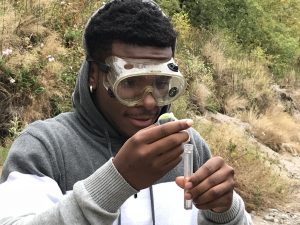
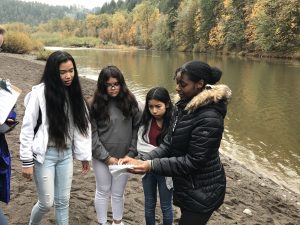
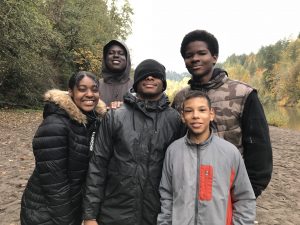
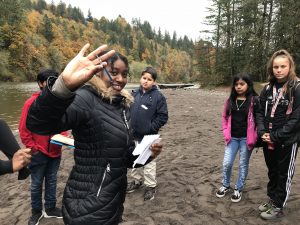
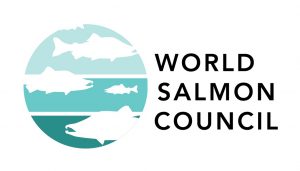
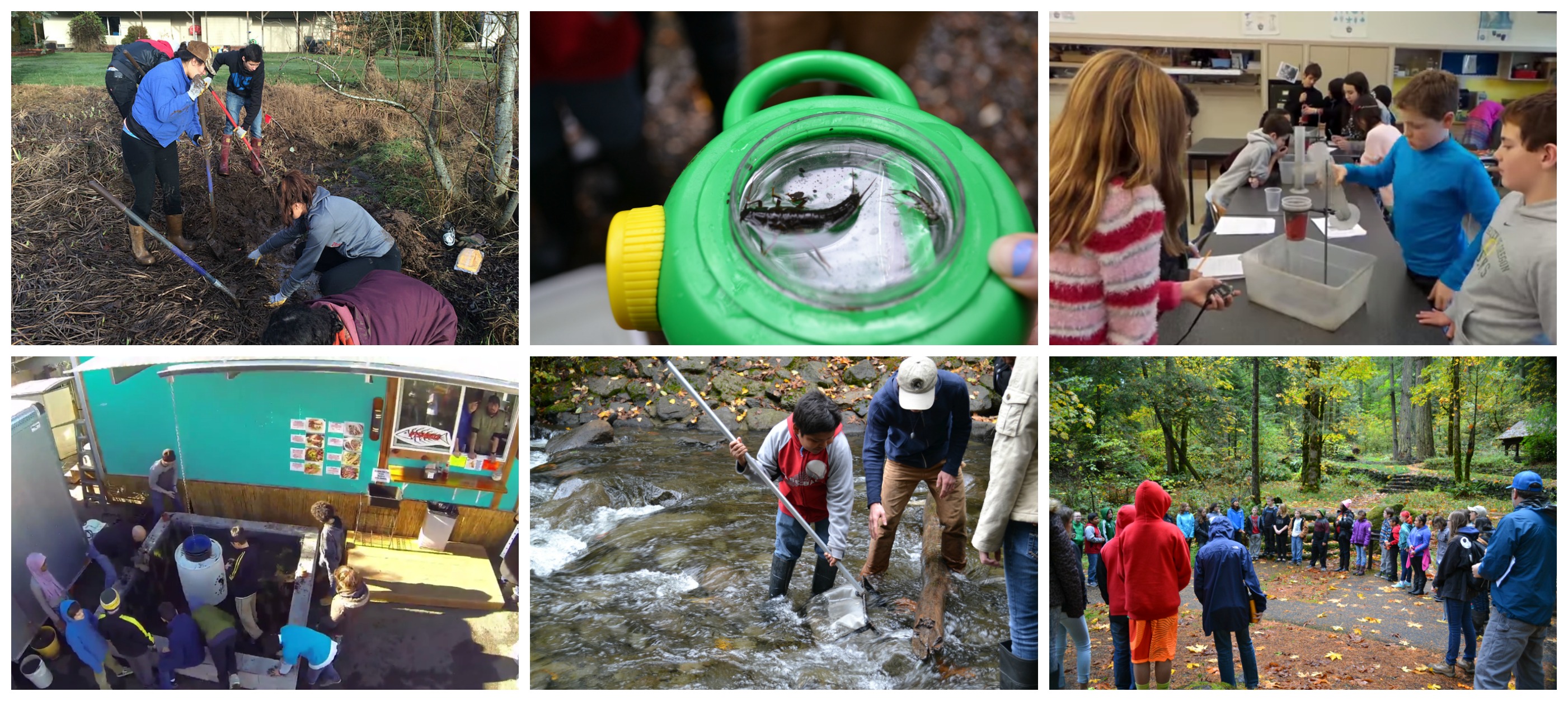
Recent Comments